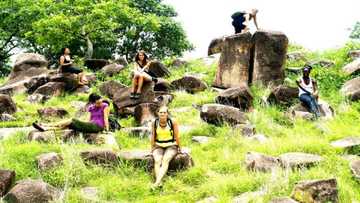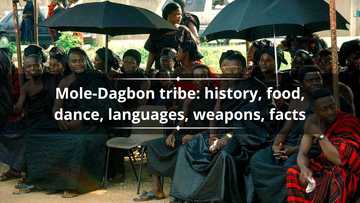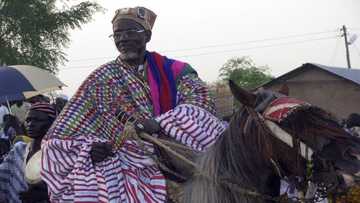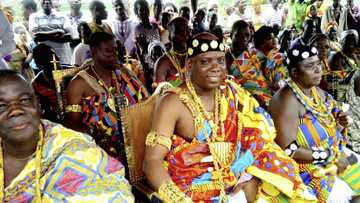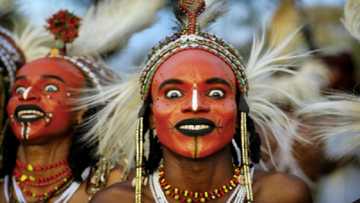Hausa: history, culture, traditions, dressing, food, interesting facts
The Hausa are the largest ethnic group in Sub-Saharan Africa. While many of them settled in Northern Nigeria, a majority are also in adjoining south-eastern parts of Niger. The Hausa are also in Benin, Cameroon, Central African Republic, Chad, Congo, Eritrea, Equatorial Guinea, Gabon, Gambia, Ghana, Ivory Coast, Senegal, Sudan, and Togo.
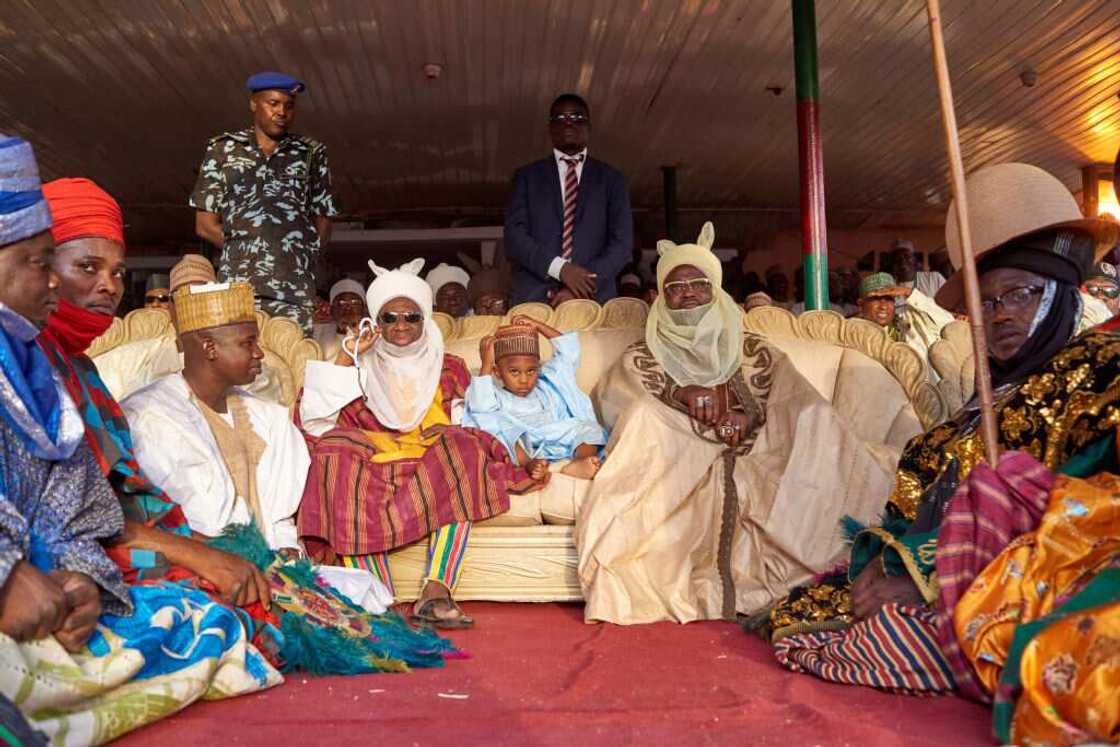
Source: Getty Images
Although the Hausa people occupy a large area geographically, many are currently in Nigeria. According to the CIA World Factbook, Nigeria has a population of over 200 million as of 2020. The Hausa make up 30% of the people, which translates to over 60 million people.
In Niger, with a population of over 22 million people, the Hausa make up 53% of the citizenry or 12 million people. By calculating their number in other African countries, they consist of about 80 million people, making them the largest ethnic group in Sub-Saharan Africa.
History of the Hausa
Myths about the origin of the Hausa state that the founder of this ethnic group was Bayajidda. He founded the Hausa States, the first of which, Rano and Gobir, emerged around 1000 (in the 11th century). Bayajidda came from Baghdad, settled in Borno and later moved to Hausaland.
At the time, Hausaland consisted of independent political states situated between Lake Chad and River Niger. Despite being a political establishment, Hausaland did not have a central authority. However, they spoke a common language and practised the same laws and customs.
READ ALSO: Ashanti culture, language, religion, food, rites, clothing, facts
Is Hausa a tribe?
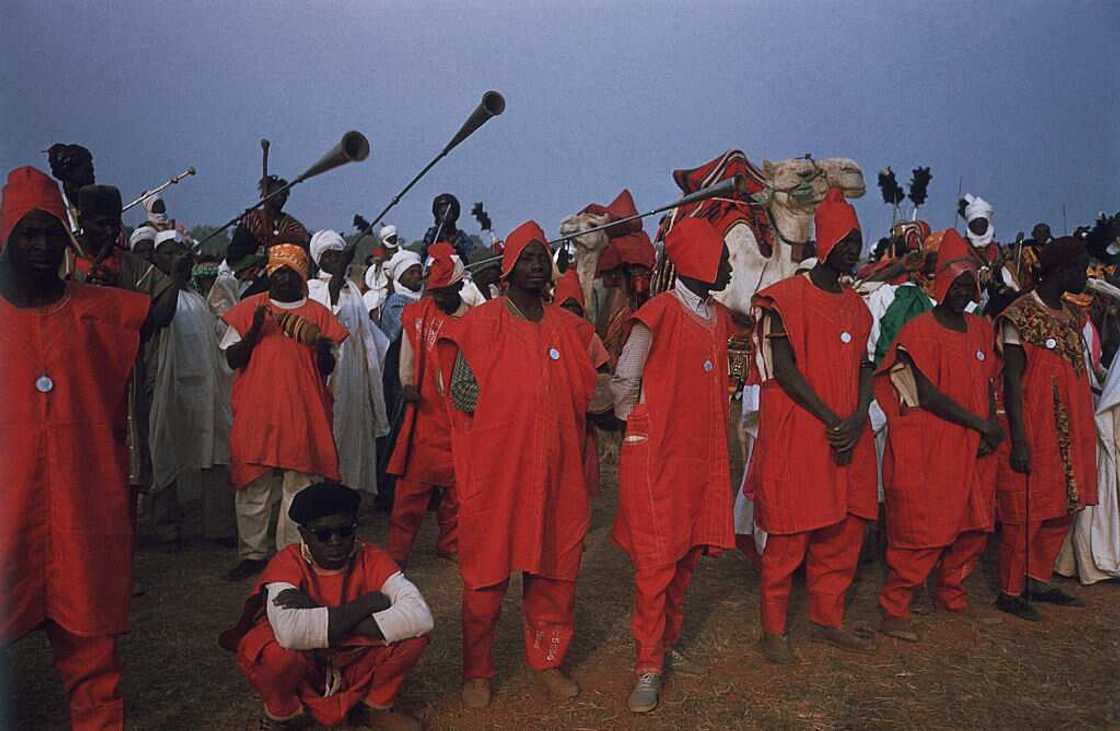
Source: Getty Images
Hausa is an ethnic group of West Africa and language spoken by Hausa people. The language is typical in territories of Niger and Northern Nigeria. However, minorities also exist in other African countries, including Cameroon, Ivory Coast, and Benin, among others.
As a language, Hausa is part of the Afro-Asiatic language family. Estimates show that about 47 million people speak the Hausa language as the first language, and over 25 million others as a second language. But since you can find the Hausa people in over 16 African nations, numbers show over 100 million people could be speaking the language.
Hausa people write their language in Arabic characters. Almost a quarter of the words they speak are Arabic. It is the reason why it is easy for some of them to communicate in Arabic.
READ ALSO: Dagomba tribe: history, food, language, traditional dress, dance, and facts
Over the years, colonisation in various Hausa-speaking nations, as well as intermarriages, has made many of them speak in other languages, including French and English. But irrespective of their ethnic affiliations, the Hausa are Muslims and often serve as a lingua franca among Muslims in countries that do not speak Hausa.
What is the Hausa tribe known for today?
The Hausa people are long-distance traders and vendors. In ancient times, they practised fishing, hunting and agriculture. Today, the Hausa are miners, entrepreneurs, and blacksmiths. Furthermore, they are known for their magnificent architecture.
The architecture manifests itself when looking at their mosques and other places of worship. Their mosques are bright, colourful, and include complex graving symbols.
What is the Hausa religion?
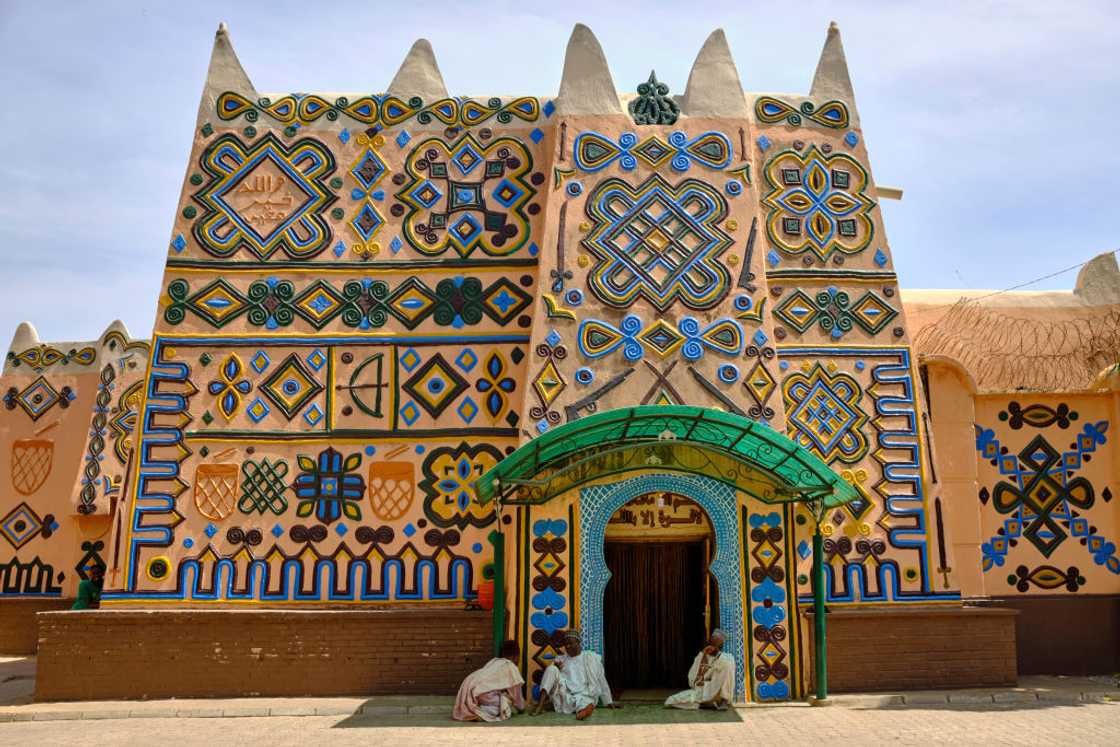
Source: Getty Images
A majority of the Hausa people are devout Muslims. In most parts of Northern Nigeria, you will find them in mosques or praying up to five times every day. The people also read the Koran, fast every Ramadan, and offer their alms to the poor.
Islam is a predominant religion of the Hausa and impacts various aspects of their lives. For example, their dressing, art, laws, and housing follow the scriptures as written in the holy Koran.
Despite being a dominant denomination or Sunni Muslims, many more engage in small native cults called Maguzawa. The Maguzawa believe in six spirits, namely Sarkin Aljan, Bagiro, Manzo, Babban Maza, Waziri, and Mai'iyali.
READ ALSO: Ga-Adangbe tribe: language, traditional wear, dances, food, and religion
What do the Hausa believe in now?
The Hausa have blended their Islamic social values and way of life for many centuries. However, they believe in the observation of the five pillars of Islam. These include conducting five prayers daily, professing their faith, giving alms to the poor, fasting during Ramadan, and attend the pilgrimage to Mecca at least once in their lifetime.
But not all Hausa are Muslims. Before the introduction of Islam in Hausaland, the people used to practice Hausa animism. It is a traditional religion that involves spirit possession and magic.
They believed that the spirits provided them with healing and divination. The best way of appeasing and communicating with them was through possession dances and performing other rituals. Furthermore, the people rely upon the Bori spirit-possession cult to cure them through diagnosing a specific spirit that is making a person sick and causing them trouble.
READ ALSO: Guan tribe: history, language, food, dance, festivals, and facts
But since a majority of the Hausa are Muslims, they also believe in the death and the afterlife. They bury their people by following Islamic teachings. When a person dies, they hold the view that the person will pass on into paradise or hell.
What are the forms of recreation and entertainment among the Hausa?
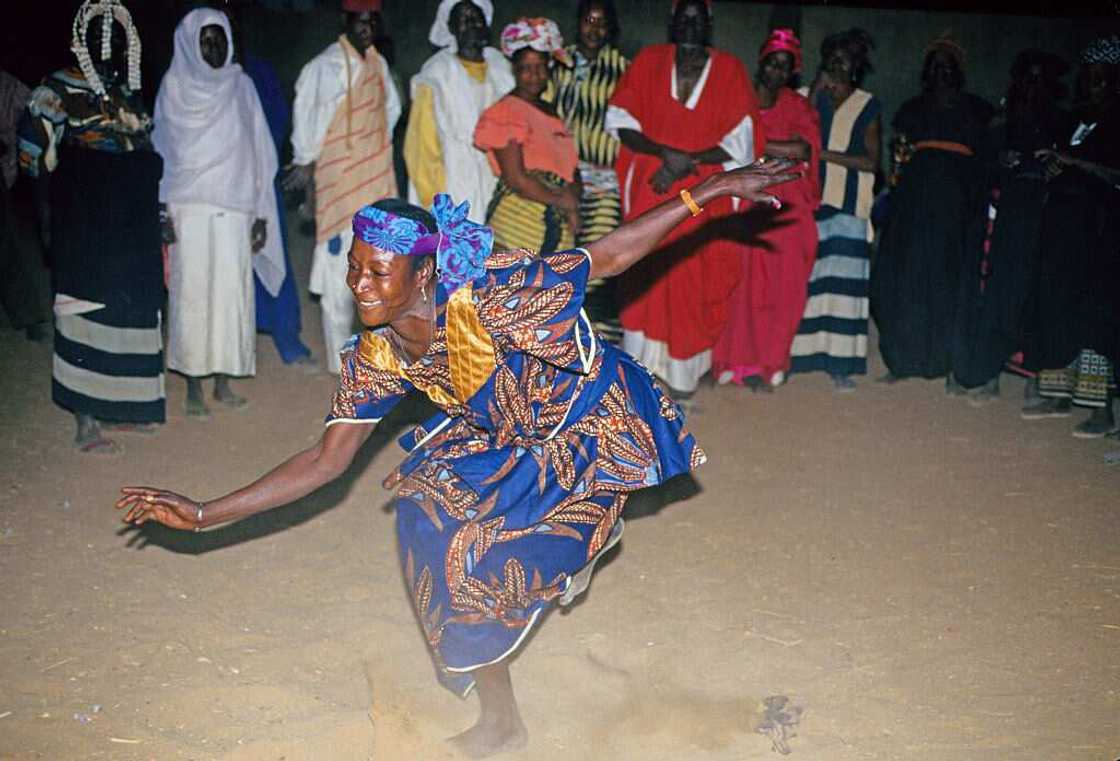
Source: Getty Images
Traditionally, children used to participate in songs and dances while at a young age. They used to dance in different places, even at marketplaces. According to oral traditions, the elders played a role of storytelling.
Whenever there were ceremonies, the people engaged in musical performances. Musicians performed at many festivities, including naming ceremonies, weddings, and parties. Because of their Islamic religion, they also sang and danced during Islamic holidays.
What are the foods of the Hausa?
Hausa people combine both traditional and modern cuisines when preparing their foods. Traditionally, the Hausa were farmers and used the available raw food materials to farm and sometimes sourced it from other places. Even today, this ethnic group depends on farm products that they have cultivated to make their foods.
READ ALSO: A list of all ethnic groups that are found in Ghana
Some of the foods that they farm and prepare for meals include millet, sorghum, rice, and corn. Before making a meal, they grind these four foods into flour and make the traditional staple called tuwon shinkafa. Tuwon shinkafa is a thick pudding that the Hausa prepare from corn, millet, or rice. It is sticky and soft, and they serve it with different soups like miyan taushe.
Apart from cultivating their farms, the Hausa also practice cattle rearing. It is a practice they conducted for many generations, including today. Because of the abundance of cattle, they eat lots of meat, especially beef. Some of their famous beef cuisines include suya and kalishi.
Hausa dressing
Traditionally, and even today, people could distinguish the Hausa from other ethnicities by their culture, religion, and origin. But another way of differentiating them is through their dressing. Islam has played a significant role in the community's strict dressing code. You will find them wearing a big gown and cap. Caps or fula are for men, but it is not necessary to wear them all the time.
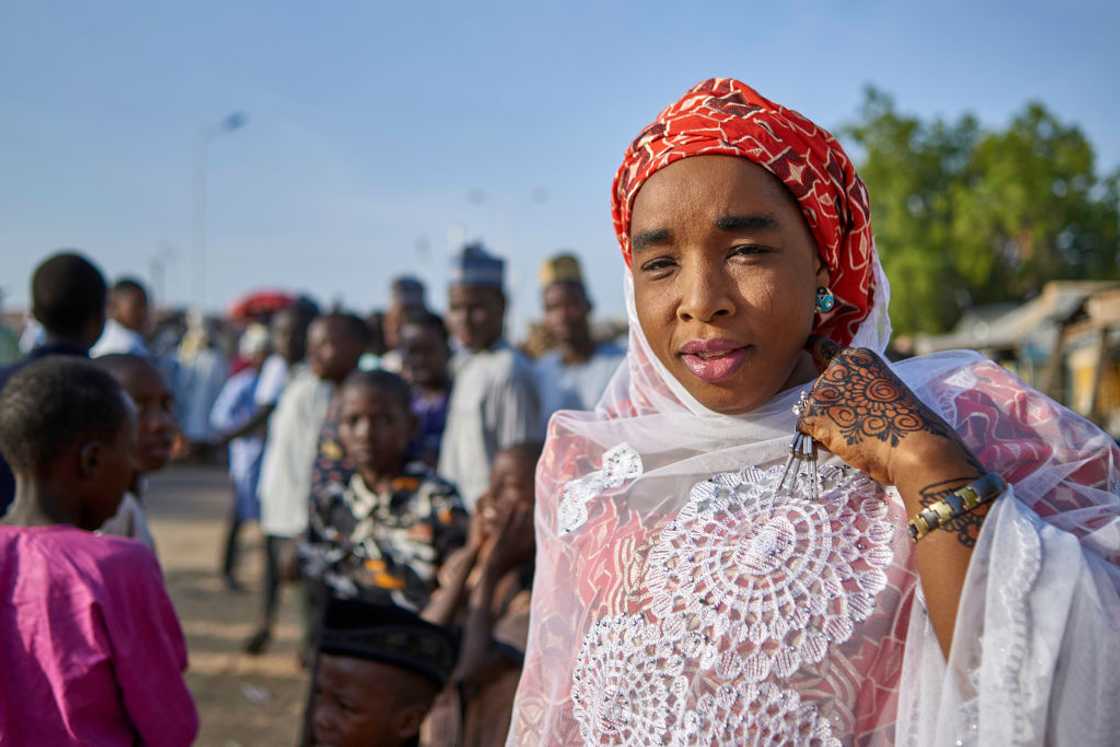
Source: Getty Images
In the Hausa culture and tradition, men wear gowns known as Babban Riga. They also wear a rob-like dress with patterns known as the Jalaba. For women, other ethnicities identify them by the wrappers that they wear known as Abaya. Women also wear hijabs, dresses, shawls, and head ties. When it comes to the hair, the women put on weaves as their traditional hairstyle.
Another way of dressing among the Hausa is through drawings. Women tend to draw tribal marks on their faces and other parts of their bodies. They have conducted this practice since the days of slavery. In those times, having markings on the body was a way of identifying themselves. That came in handy in case of war, capture, or invasion by neighbouring communities.
Hausa rites of passage
The Hausa rites of passage begin when a child is born through their teenagehood and death. During birth, the people give the child an Islamic name and conduct a ceremony to celebrate a new life. If it is a boy, he will get circumcised when he reaches seven years old.
READ ALSO: List of all adinkra symbols and their meanings
In the mid to late teenage, both young men and women get the choice to become engaged. The community conducts a marriage ceremony that can take up to a week.
The celebrations start with the bride, her family, and friends, as she prepares herself for marriage. Once things are ready, the elders follow Islamic law by signing a marriage contract at the mosque before bringing the couple together.
When a person dies, the people follow the burial principles of the Islamic religion. Before burying the deceased, the Hausa wash the person and wrap them in a shroud. They then bury the person facing eastward towards Mecca, the holy land. The final stage is reciting players. If the person that died is a man, the wife will have to mourn him for three months.
The Hausa are an ethnic group found in northern Nigeria and southern Niger. They are the largest ethnic group in Sub-Sahara Africa, with an estimated population of over 80 million. As a people, the Hausa are predominantly Muslims. However, a few of them believe in a spirit-possession cult. Like other ethnicities, the Hausa also have rites of passage and distinguish themselves from others by the types of clothes they wear.
Culture is big in Ghana and Yen.com.gh has created an opinion piece covering the positive and negative cultural practises carried out by various tribes in the country. This comes even as urbanisation has made some of the cultures to be forgotten.
While many of the cultural practises in Ghana are great in the sense that they bring a sense of belonging and pride in African identity, the same can’t be said of others. Get to know which of them have a positive influence and those that are negative.
Source: YEN.com.gh

